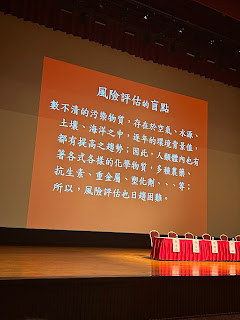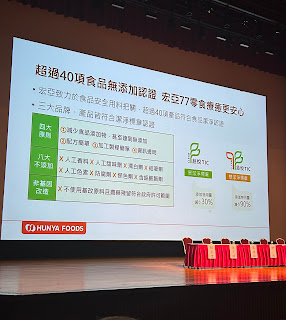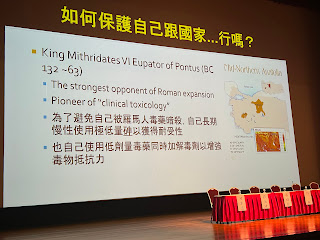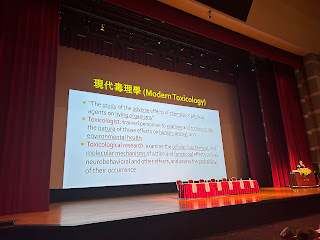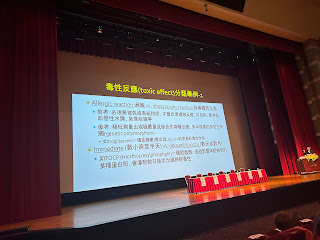臉書的老闆 馬克.扎克伯格 (妻為中國人) 最近的一次演講
扎克伯格:由我自己來回答為何娶醜妻?
我就是facebook的馬克·扎克伯格,對,我就是你們傳說中的那個又年輕又有錢又不鬧緋聞,還是愛妻狂魔,還長著一張可愛娃娃臉的小扎!我今天想花十幾分鐘時間,跟中國的朋友們閑聊幾句天,用你們的話說叫談談心。
就像今年在你們的清華大學演講時一樣,我盡量用中文,不過因為我的中國話說得不夠好,大家多包涵多包涵,我會努力講清楚的。
我前天喜當爹,全世界的朋友都祝福我和我們一家,我很感動。可是也有很多中國朋友提出了懷疑,主要是兩個問題:
1、我為什麼娶了個醜女?
2、我捐了450億美元,是不是避稅?
我的朋友們建議我不必回答這幾個問題。比爾蓋茨、著名歌手Shakira 以及我朋友圈的所有的人,他們都不主張回答。
我明白他們的想法,他們的意思用中國偉大的莊子的話說,就是夏蟲不可語於冰,井蛙不可語於海。
他們還說,有什麼樣的世界觀,就會看見什麼樣的世界。你不相信世界的美好,你就當然無法擁有美好的世界。很多中國人陰謀論盛行,內心里就像瘋長的雜草,卻就是不願打開心靈的窗戶接納燦爛明媚的陽光。
他們不是瞧不起你們中國人,而是有些擔心。我想他們是怕我說了你們也聽不懂,或者說不願意相信,那我就成了傻瓜了,不僅浪費了時間精力,還浪費了大量的唾沫星子(不知道這個比喻用在這裡合適不合適)。
我想,現在是移動互聯和大數據時代,沒有體驗過冬天的夏蟲,我們可以用新技術方式讓他們體驗到冬天,沒見過大海的井蛙,我們也有辦法讓它體驗到大海。現在是技術男的時代,我們技術男總是會有辦法的。
所以,我還是決定回答一下中國朋友對這兩個問題的關心。順帶著再多回答幾個問題,比如我為什麼不買豪車、為什麼總是穿那一件T恤衫。
今年你們的習大大訪美時我們見過面,當時我跟馬雲和馬化騰私聊時其實也說明過我為什麼娶醜女。當時還沒有捐款,所以就還不存在是不是避稅的問題。請注意我是說明而不是解釋。我用不著向任何人解釋我的私人問題。但我還是向兩位馬先生說明了我的感受和想法。
也不知道他們二位聽明白了沒有,我想可能還沒有完全明白。沒關係,我再對所有關心我的中國朋友細細說一遍。
嗯,我還是忍不住先曬一曬我喜得千金的巨大幸福。不知道你們是否了解,在此之前,我們曾有過三次流產的痛苦經歷。在過去幾年我們一直嘗試著要孩子,但是一共流產了三次。
當你知道自己將要有孩子的時候,你對一切都充滿了希望。你開始想象他們會變成什麼樣子,為他們的未來設想。你開始制定計劃。然後,他們離開了……
中國的朋友們,你們能否想象,作為一名哈佛醫學院畢業的媽媽和一位富可敵國的爸爸,這麼想要一個孩子卻失敗了三次,這是一種什麼樣的經歷和體驗?我們也是普通夫妻,也有和你們一樣的困境,我們現在有多激動,當時就有多難過!
我們倆擁抱在一起,相互撫摸,相互安慰,相互支撐,一起度過了那些痛苦的時時刻刻,日日夜夜。
那是一段孤獨的經歷。大多數人不會和別人討論流產這件事,就好像你有什麼缺陷,或者你做錯了什麼才會招致這一切。所以你只能獨自面對。
一個男人如此投入地想成為一個爸爸,可是之前失敗了三次,而今終於成功圓夢,我真的很激動。
OK,請祝福我們的小Max(馬克斯),祝福我們的小天使健康快樂的成長!
好,現在我來回答朋友們的問題。第一個問題是,我為什麼娶了個醜女?
我先談談什麼是美女,什麼是醜女。
是的我有大把的機會見到各種美女,可是我看見那些所謂的美女,心是玻璃心,病是公主病,還有傲嬌症,還問我為什麼那麼有錢了卻不換一輛豪車。我知道她想換豪車是想出去顯擺,是想自拍發朋友圈吧。
這樣的女人就算外表再美,心靈也是索取的,因而也是醜陋的,靈魂是肮臟的。這樣的美女,我看才真正是醜女,白給我也不要。
而且,外表的美是會隨著年齡貶值的,而內在的美是會隨著歲月增值的。這一點,華爾街所有的經濟學家都懂得,所以我和他們一樣,不會去碰那些會迅速貶值的東西。
那麼我愛普莉希拉·陳什麼呢?
女性的容顔是她心靈的寫照,她的笑容永遠是清麗溫和的。自從懷孕之後,她也完全沒有在意自己的容貌因為懷孕而產生的變化,依然是樸素的穿著,不施粉黛,可是她的幸福我完全感受得到,也可以被所有人看見。
我愛她的上善若水與真實質樸。我愛她的表情:強烈而又和善、勇猛而又充滿愛,有領導力而又能支持他人。我愛她的全部,我和她在一起,感覺很舒適很自在很放鬆。
我也完全不認為她是高攀我。她除了情商高,智商也很高,別忘了她可是哈佛醫學院的,你去考個哈佛醫學院試試看?哈佛法學院、醫學院、商學院都是出了名的全球擠破頭的地方,就算擠得進去你能畢得了業?
要說高攀,那只能是我高攀她!
婚姻是一雙鞋子,是不是合腳只有穿的人知道。陳就是最適合我的,按你們中國話說,我和陳是天造地設的一對。你們都知道了,我和她是在排隊上廁所時認識的,在她面前,我就是一個書呆子。這就是千里姻緣一線牽吧?
所以,你們看她是醜女,我看她是美女,而且是最適合我的美女!
我又忍不住要曬我和陳的溫馨合照了:
你看我和陳我們倆是不是特幸福、特和諧、特自然?
順便勸一句:有些女生眼里只看見別人的醜,卻沒看見別人的美。這樣的話,幸福真的只會遠離你,只會與你無緣。因為,有什麼樣的內心就有什麼樣的世界。
再說說是不是避稅的問題。
你說我捐了450億是為了作秀或者避稅?那是你腦袋有問題還是我腦袋有問題?
我們捐出的錢其實不是450億美元,合人民幣大概2800個億,但這只是市值,實際上有可能更多,也有可能變少,這都是由市場決定的。
我們捐出的這筆錢是用於建一個基金,投資學校和醫療。
我們在孩子出生前就去參觀醫院,希望為醫療事業奉獻自己的力量。隨著技術的加速發展,我們真的有希望在未來100年預防,治療或者遏制幾乎所有的疾病。今天,人們大多死於心臟病、癌症、中風、和傳染病等。我們在這類疾病治療方面,可以走的更快。
一旦我們意識到我的孩子以及所有的孩子可能不必遭受疾病之苦,那麼我們大家都有責任將我們的投資用於實現這一目標。我再說一遍,我和我的妻子將貢獻我們之所能。
在矽穀,“改變世界”這句話不僅是一個口號,它更是一種真正的信仰和力量。我們的夢想就是希望用我們的努力去改善教育、改善醫療、連接世界,回饋社會,去改變世界,建設一個對所有人都更美好的世界。
我想問問中國朋友們,我們正在用自己的行動來 Change The World,你們做了什麼呢?我聽說你們很多人有很多抱怨,我想說,抱怨是沒有意義的,行動才有意義。
再說了,我們把99%的股份都捐出了,幾乎全部都捐出了,你覺得這還是避稅嗎?避稅還有意義嗎?還有,很多中國朋友也很有錢,你們為什麼不也捐出99%去避稅呢?
還有我穿什麼衣服、開什麼車的問題。
是的,我常年就穿這面這樣的灰色圓領短袖T恤衫,開的車也是非常普通。
聲明一下,我可不是多少天都不換衣服的人,我以前說過,我買了很多件一模一樣的灰色短袖T,我想讓我的生活盡可能變得簡單,不用為做太多決定而費神。因為選擇穿什麼或者早餐吃什麼這些小事都會耗費精力,我不想把精力浪費在這些事上,這樣我才能把精力集中在更好地為社會服務這些重要的事情上。
我有三輛車。我日常出行,以前開著一輛1.6萬美金的本田飛度,大概10萬人民幣吧。還有一輛大眾高爾夫,美國售價18000美元左右,人民幣11.5萬元左右。曾經最貴的是謳歌TSX,美金3萬多,人民幣20萬也不到。
後來Facebook 上市後,我換了一輛大眾GTI,美國定價30415美元,折合人民幣依然是20萬不到。
我覺得,車就是一個代步工具,沒必要花那麼多錢。
我渾身上下也沒有名牌,我覺得舒適就好,為什麼需要用奢侈品來點綴自己呢?要說奢侈品,自己的頭腦才應該是,自己的情感才應該是。
你們古代的中國人說過,人要役物而不是役於物。這是普莉希拉教給我的,這句話的意思就是,物質是人用的,是為人服務的,而人不是被物用的,人不應該是服務於物質的。人是物質的主人。要是物質成了人的主人,那就弄反了。我覺得這句話特牛掰!
我特讚賞的曼德拉也說過類似的話:我是我靈魂的統帥,我是我命運的主宰。所以我不追名牌,那沒有意義,而且很荒謬。
有什麼樣的內心就有什麼樣的世界。請相信世界是美好的,如果你不相信,那麼你就無法擁有美好的世界,無法擁有美好的生活和人生。對這一點,我和普莉希拉堅信不疑。
說了這麼多,有說的不對的,大家多指教!你可以給我留言。謝謝你能花時間聽我講這麼多,謝謝!
你們的朋友,小扎
















